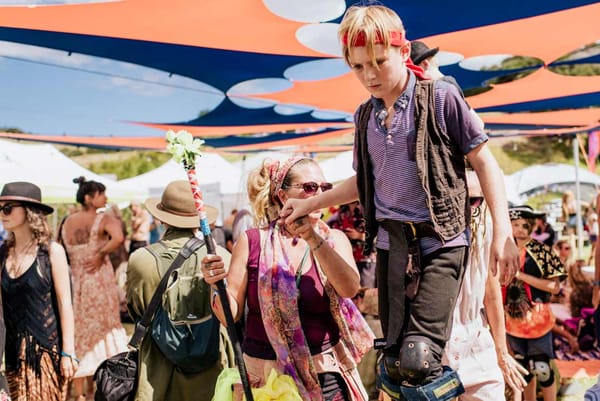Awakening New Ways of Thinking for Freeing Our Minds
In a recent generative conversation, the complexities of collaborative work, personal alignment, and active listening came to life. Through this dialogue, a powerful theme emerged: resourcing someone’s thinking is more impactful than giving direct solutions.

In a recent generative conversation, the complexities of collaborative work, personal alignment, and active listening came to life. Through this dialogue, a powerful theme emerged: resourcing someone’s thinking is more impactful than giving direct solutions. For regenerative practitioners (RP), this revelation highlights how the art of questioning and reflection leads to deeper engagement and creative breakthroughs.
The conversation started with an RP who was struggling with designing an 8-month programme for Regenerative Design. Their initial approach was to delegate tasks, seeing this as a way to "unstick" themselves. However, this was not aligned with a self-determining epistemology—a cornerstone for any RP’s practice. It was through active listening that a different approach was unearthed. Instead of diving into problem-solving mode, holding space allowed the conversation to evolve, revealing deeper insights into their current state of ‘stuckness’.
Here’s where a key idea emerged: use thinking frameworks. Engaging the RP in the "levels of thought" framework helped shift how they were thinking. Rather than telling them what to do, resourcing their mind to explore new perspectives, in this case through the different levels of thought, was what truly "unstuck" them. This simple act of guiding someone to think about the premises they are holding, instead of taking over the task, moved the process forward in a collaborative and empowering way.
As RPs, we can often find ourselves stuck when the methods we rely on lack clarity or precision. In another part of the conversation, the principle of "giving things a go" came under scrutiny. While well-intentioned, the lack of refinement in this principle highlighted the inefficiency that can arise when a clear framework isn’t in place. In contrast, karma yoga, or the idea of learning by doing with hands in the soil, proved to be a more resonant premise and led to a more purposeful approach.
This dialogue also explored the value of alignment in collaboration. Having a shared charter of premises and principlesnot only allows for more seamless working relationships but also provides clarity in decision-making. In this case, the charter was also seen to provide a sense of relaxation and trust in the team’s collaborative efforts.
Perhaps most intriguing was the discussion around resourcing others, not by imposing our own views but by engaging them in frameworks that awaken consciousness. This can be a challenging practice for independent thinkers, especially when faced with opposition. But, as was evident in the conversation, the power lies in forming questions. Instead of judging or correcting, guiding someone’s thinking process can lead to profound changes in perspective.
The essence of this dialogue process lies in unlocking new ways of seeing. For RPs, the key takeaway is that transformation doesn’t come from more answers—it comes from forming questions. And by creating space for others to form their own inquiries, we enable discovery that is truly self-determined and empowering.
Key Ideas for Regenerative Practitioners:
- Resourcing Thinking Over Providing Solutions: Deeper understanding occurs when we guide others to their own insights.
- Active Listening Produces a Shift in State: By holding space in conversations, we uncover deeper truths.
- Thinking Frameworks: Using structured thinking frameworks to explore new ideas, subjects, or activities can unlock creativity and innovation.
- Alignment Through Shared Principles: A charter helps maintain clarity in decision-making, action-taking, and collaboration.
- Forming Questions: Guiding someone’s thinking process with question formation draws on our ability to imagine the nestedness of the wholes we are in service to, awakening new perspectives and leading to powerful shifts.
Conclusion
For RPs, this approach emphasizes the importance of the premises we hold, the principles we are guided by, questioning the status quo, and creating a space where ideas can evolve organically. The path forward is not about control but about fostering a collaborative environment where thinking, questioning, and aspiration drive the work.
Call to Action
Use framework thinking to reconsider how you approach conversations and collaboration. For those working from a self-determining epistemology, it shows that the art of resourcing is the real key to innovation, discovery, and learning.




